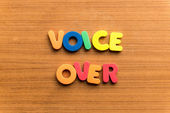How Professional Commercial Voice Talent Prepares for a Voice Over
Posted on: February 15, 2016 By PBTalent
When seeking top commercial voice talent for your television, radio, or online commercial, you will spend a lot of time considering precisely what kind of voice you are looking for—young or old, sophisticated or down-to-earth, English or Spanish, and you will take great pains to ensure the best high-tech equipment is in place and all of the contract details are fully understood. Yet, the best candidates for your commercial voice over will also typically be the best-prepared, and therefore, you should also consider how to spot a well prepared auditioner.

Below, we list 6 practices of top-tier voice talent that help them get ready for a stand-out commercial voice over
1. Taking Good Care of Their Throat
It is not merely a talented voice that will make the difference in your commercials—a healthy throat/vocal tract is just as important. Three of the main concerns for commercial voice artists in taking good care of their “equipment” includeProperly hydrating, preferably with room-temperature water, well ahead of any scheduled sessions. This includes but is not limited to merely bringing some bottled water along to the recording studio.Avoiding coffee, soft drinks, and milk. A small amount of mild coffee hours before the audition may not hurt, but strong coffee and soda can dehydrate the system. Milk causes one’s mucus to flow and interfere with an optimal recording. If water alone is not enough, natural herbal teas are probably the best choice.Medicating for allergies or other illnesses, but not too heavily and well ahead of time. By using medicines that are effective and yet have little if any side effects, voice artists can keep themselves mentally alert and physically fit.
2. A Willingness to Revise and Re-Record
Professional commercial voice talent should come to a voice over prepared to “do it right the first time”, but be willing to adjust and try again until the client is pleased. It is best practice to make multiple recordings of the commercial, each with slightly different emphases, inflections, and speeds, so producers will be more likely to find their ideal recording.It is not that every single word needs to be shifted per recording, but the artist will concentrate on the most important parts and on any potential “trouble spots.” Even with top talent, there may be times when a producer wants to iron out some details and make sure that the best possible take goes on the air; thus, you want an artist who is prepared to adjust to your preferences as needed.
3. Solid Interpretation of the Script
Commercial voice auditioners should be accustomed to carefully reading through your script before beginning a new recording. It can be read silently first to take it in mentally, but then it needs to be read out loud to get a better feel for the rhythms and flow of the copy. It is a good sign if the the artist has a system for marking up the script for rising/steady/falling inflections, for volume and speed, for pauses and breaths, and for emotional quality. If necessary, they may even reprint the script to make it easier to read.Also keep in mind, however, that everyone will prepare the script and prepare themselves to read it a bit differently. The main point is that the artist obviously has a system that works well for him/her so that the best possible read is achieved.
4. Grasping Their Character and Audience
One of the most important parts of preparing to read a script well is to understand the role you are playing in “the script’s world,” be that a peer, an authority figure, a family member of friend, or anything else. Unless the artist can feel at home with that role and “wear it like a glove,” the performance may come out awkward or skewed.Top artists know both “who they are” in the script and who they are talking to. When talking (primarily) to men versus women, to seniors as opposed to youth, or to high-income versus low-income audiences, there may be subtle changes in the best way to communicate. Following local dialects/slang is another means to connect with the audience, and of course, if the audience is mostly Spanish-speaking, the script will be in Spanish.
5. Understanding the Brand and the Commercial’s Purpose
Not only does the best voice talent take time to understand their character and audience, but they also take pains to make the reading appropriate to the brand or other entity that the commercial will represent. If the brand’s name appears in the script, they find a way to give it extra attention without sounding unnatural.The purpose of the commercial will be closely related to the company/organization that is putting it out, and voice artists will need to clearly connect the brand to the purpose and to put sufficient emphasis on any calls to action in the script. Furthermore, reading words on a page without recognizing their higher purpose tends to have a negative impact on voice quality, while reading with the purpose always firmly in mind tends to produce quality voice overs.
6. Focusing on the “Key Line”
Although good preparation for reading a commercial voice script involves many things, the best talent will know how to accomplish it all while still keeping their main focus on the “key line.” Practically every commercial will have one key line that is meant to stand out and be memorable. It might be a slogan, a tag line, or a transitional line, but regardless of its exact nature, adequate preparation will ensure it gets the attention it truly deserves.When seeking top commercial voice artists for your voice overs, do not overlook the need for candidates who are prepared both physically and mentally for the task. Working through a reputable talent agency that selects the best talent and encourages full preparation is often the best route to take in addressing this need.
Sources:
http://www.videomaker.com/article/c4/13516-10-voiceover-tips
http://marcscottvoiceover.com/5-tips-for-interpreting-a-voice-over-script/
http://www.pbtalent.com/commercial-voice
